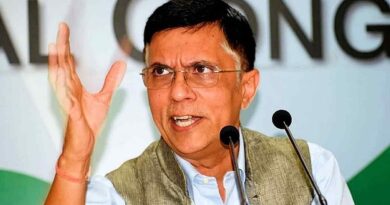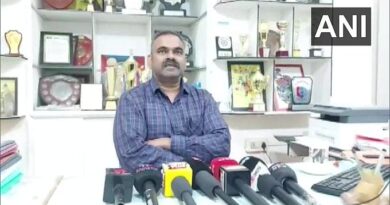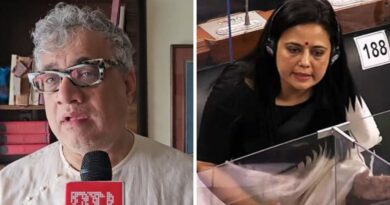Why the Muslims of Uttarakhand are afraid, very afraid
After chants of ‘Jai Shri Ram’, the reporter asked why no verification had been done yet.
A month later, a tweet that said ‘Anger against rape jihad is not stopping in Uttarakhand’ attached a newspaper clipping about another Muslim man accused of raping a cow in Dwarahat, in neighbouring Almora, 125 km away from Kamaluaganja. A video with the tweet showed men yelling “Halla bol (a battle cry)” and “Hindustan hamara hai (India is ours)” and shouting abuses while shuttering Muslim shops.
A plea for help
In April this year, before the events of Purola and Haldwani, the Supreme Court directed all states to register suo motu FIRs against hate speech and take action against offenders.
In October 2022, the apex court had ordered Uttar Pradesh, Uttarakhand and Delhi specifically to do so.
One of Mander’s interlocutors said, “Even if we have a strong law, only the administration can implement it; but that doesn’t happen because the government won’t let them, for their own benefit.”
“We cannot understand how to stop the poison. We cannot rely on the administration and the government to stop it because they are spreading it,” he said. “More than Muslims, non-Muslims need to take a stand and stop this in society.”
In the Kamaluaganja matter, for instance, interlocutors said that one K.K. Bora, a trade unionist linked with a community party, and some “secular officers who still remain” in the police force stepped up to manage the situation, and good sense prevailed.
Asking for a “public movement against hate”, an interlocutor said, “You and I have to think whether we are making a society where our children are becoming criminals. Are we making a society where there is no difference between good and bad?”
That same interlocutor ended by saying that Mander should institute a ground team to let him know if there were incidents where Muslims were in danger in the state. Mander said that concerned citizens in Uttarakhand had been reaching out to him for quite a while about the rising tide of anti-Muslim hate in the state, but they had put off meeting out of fear of calling attention to themselves and making things worse.
But with the BJP government seemingly leading the charge against Muslims in Uttarakhand—with the chief minister using the terms ‘love jihad’ and ‘land jihad’ over and again and speaking of ‘population imbalance’ and changes in demography—the Muslim citizens’ fears of expulsion, loss of livelihood and violence have intensified.
Dhami’s words
At a public meeting in April this year, Dhami said, “Uttarakhand will not allow land jihad.” The government, he ‘promised’, would be tough on people settling in the state with “the intention of changing the demographic pattern of the area”.
In April, the chief minister said that 1,000 ‘unauthorised’ mazars (mausoleums or tombs) have been built on forest land illegally in Uttarakhand, calling it ‘mazar jihad’, and a space from where ‘anti-social elements’ emerge.




